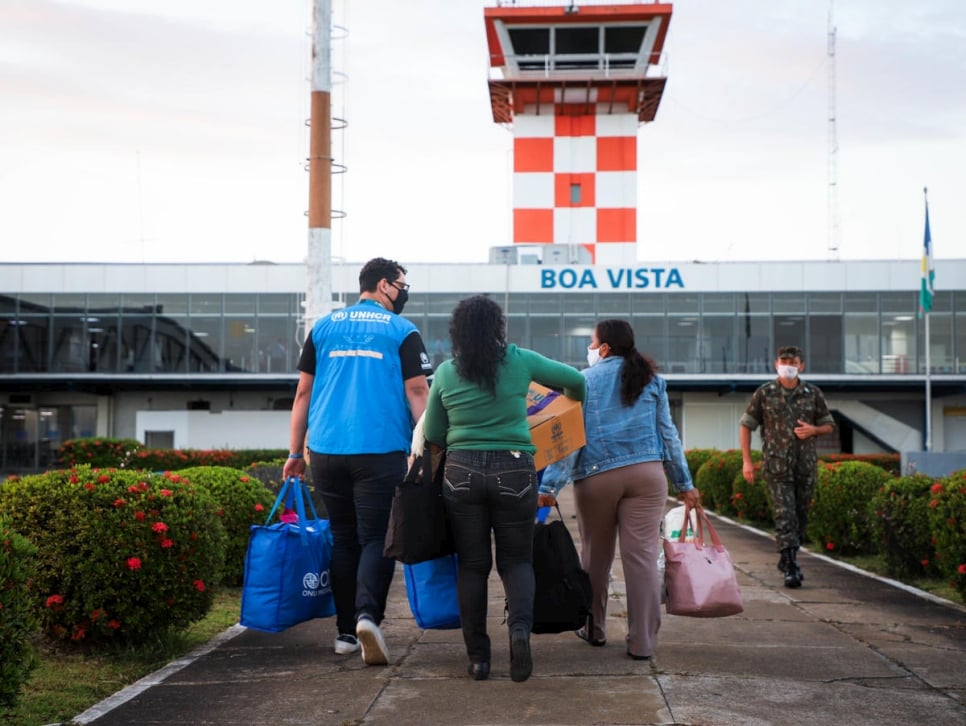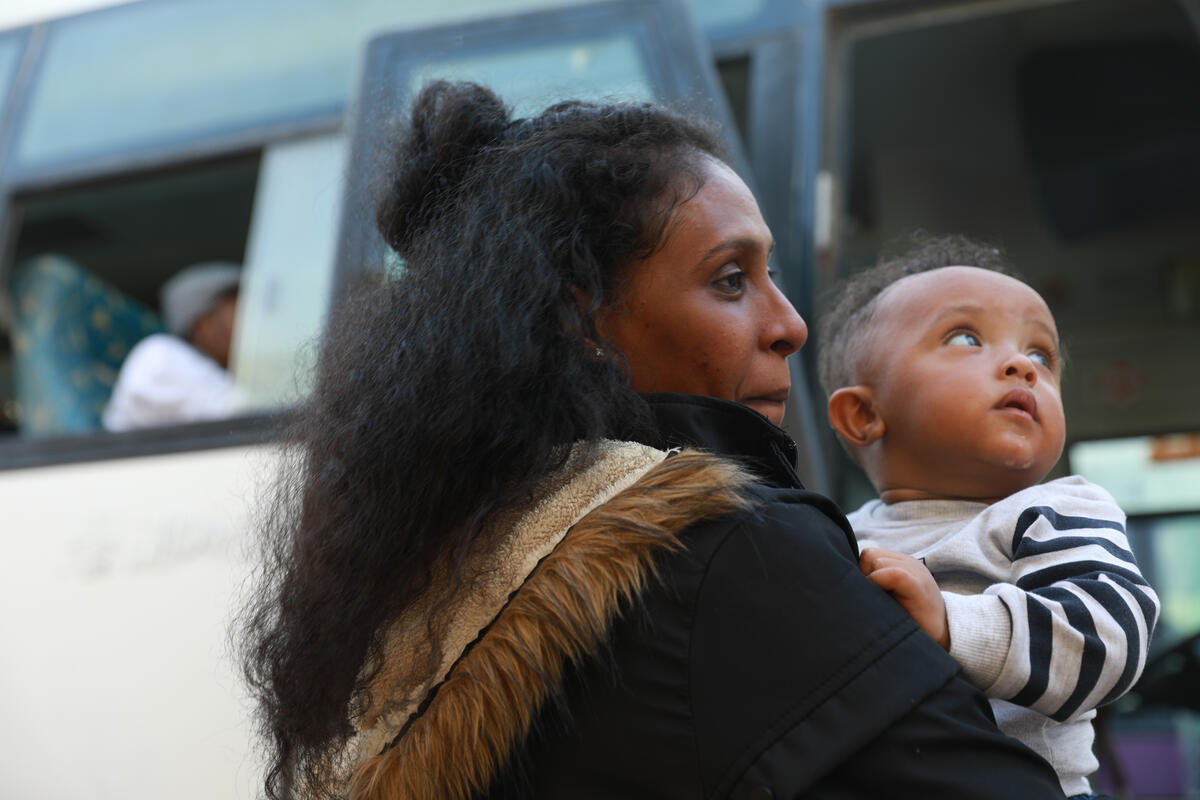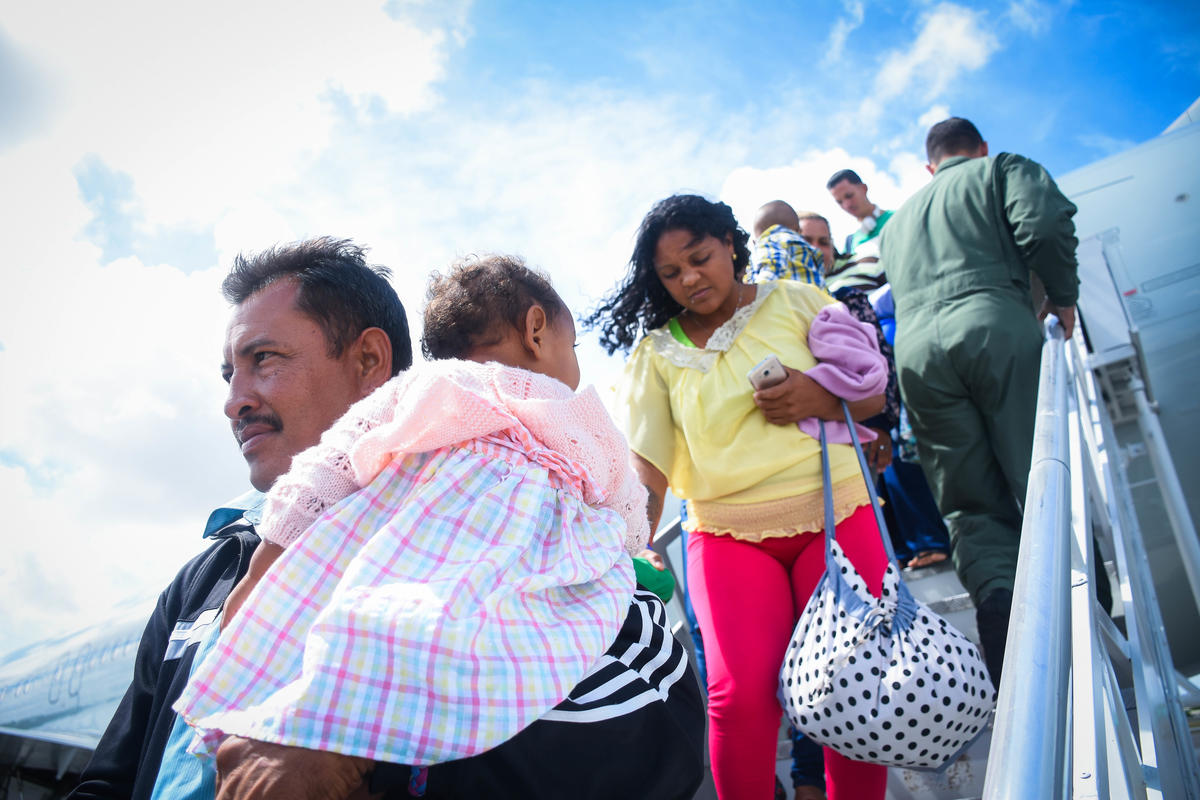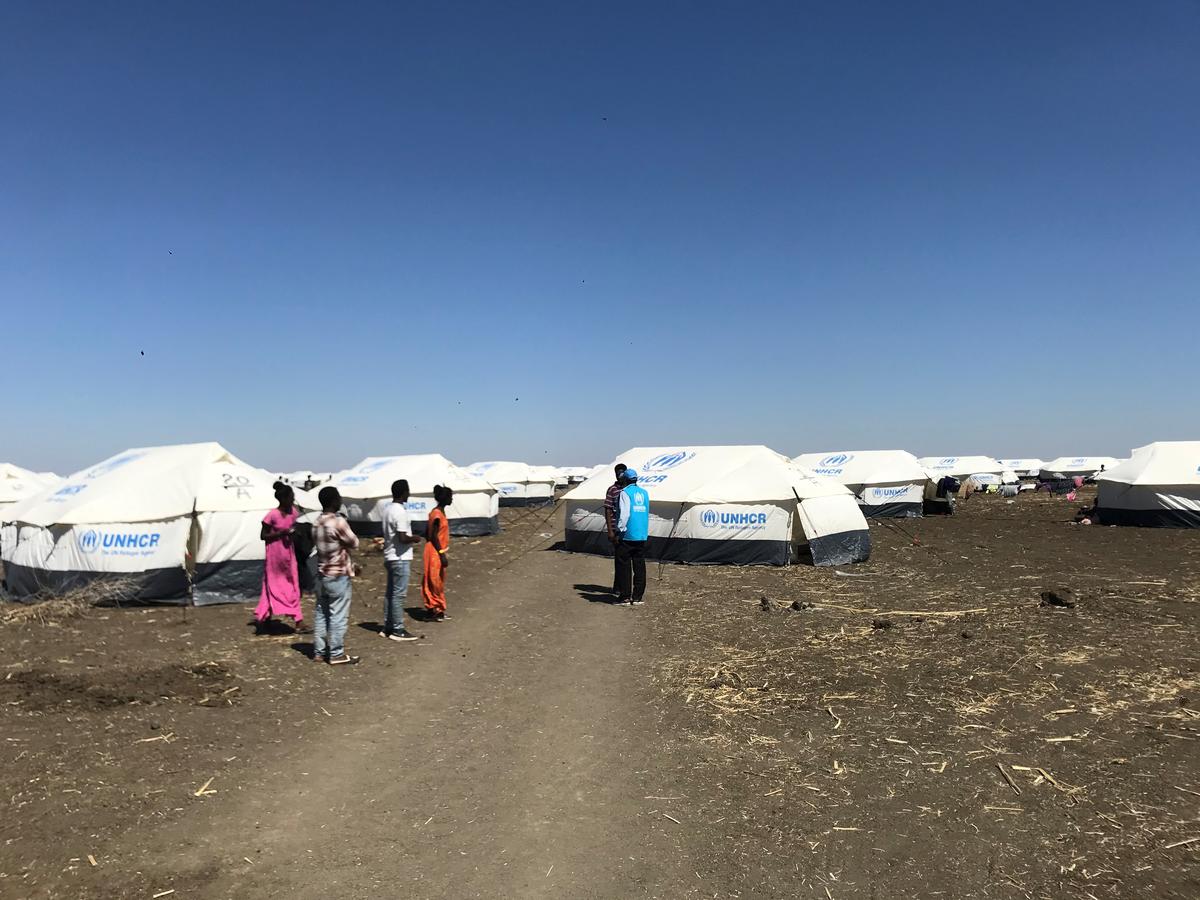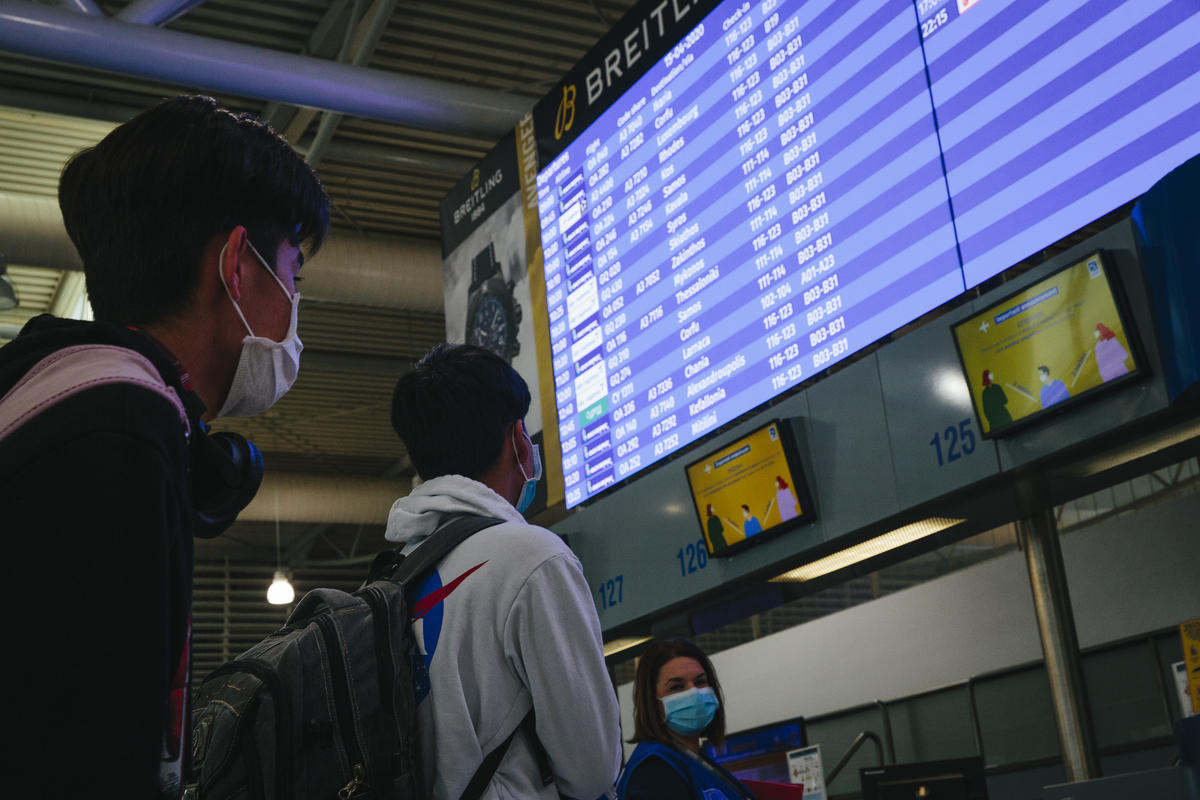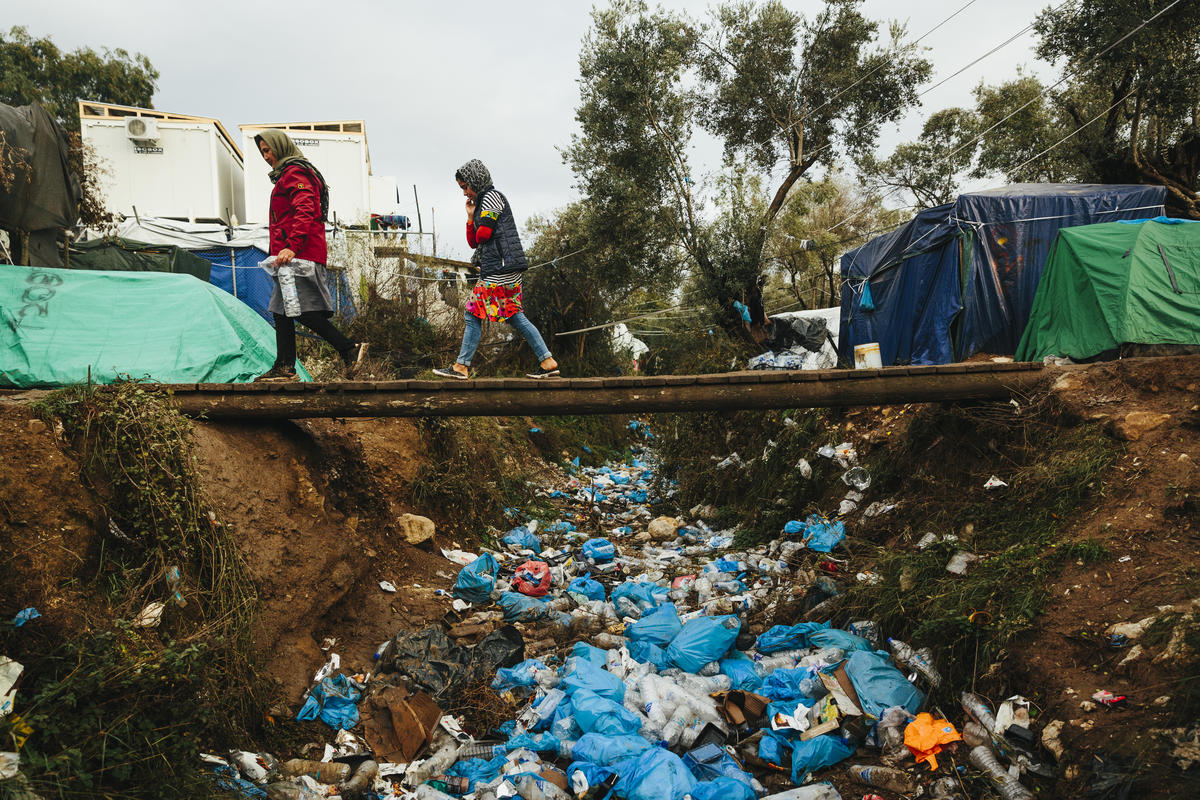UNHCR moves refugees to Chad camp; border incursion reports continue
UNHCR moves refugees to Chad camp; border incursion reports continue

TOUKOUL TOUKOULI, Oct 5 (UNHCR) - Youssouf Ahmat Issa walked away from this uniquely named village of straw huts and headed towards an ample open field. He pointed to the middle of the field, where a rock formation marked Chad's border with Sudan and where Janjaweed militiamen are often seen. Further beyond, the hills of western Darfur stood sharply against the bright sunlight.
Ahmat, who lives in the Chadian border village of Toukoul Toukouli, said that just a few days before, more than 50 Janjaweed militiamen on horseback had arrived at a nearby town on market day and stolen 1,000 head of cattle. He alleged that such incursions were routine, adding that the villagers had recognised the men on horseback, who were dressed in military uniforms and spoke Arabic.
Ahmat's two wives and nine children were among the more than 700 Sudanese refugees who were transported by UNHCR between Saturday and Monday from this border region in eastern Chad to Farchana camp 70 km further inland. Ahmat said he was sending his family to Farchana but that he would stay behind until he could sell his two remaining sheep and two donkeys. When he arrived here from Sudan's Darfur region eight months ago, he said, he came with 15 sheep, four cows, and the two donkeys, but most of his animals have since been stolen by militiamen.
"I'm happy to go to the camp because we will be safe and we will have water and food, but the local population here will continue to be the victims of the Janjaweed," Ahmat said.
The refugee transfer that began over the weekend will continue for about a month until an estimated 3,000 Sudanese refugees who had remained at the border in the Adré area until now are moved to Farchana. Most had chosen to remain here because they belong to the same ethnic groups as the Chadians and because of the available grazing land for their animals. But as their flocks were stolen or died, they found it increasingly difficult to survive.
Ahmat, like many other refugees along the border, made some money by tending the fields of the local population. But a particularly short rainy season has led to a poor harvest, leading to food shortages for the locals as well as the refugees. The only solution, many refugees now say, is to move to the camps.
The shortage of food has increased tensions between the refugees and local Chadians, who originally welcomed their unexpected guests with open arms. But as resources have run out, physical attacks against the refugees have increased. During a recent visit to eastern Chad, High Commissioner Ruud Lubbers said he was aware of the problem and called on the international community to help Chadians cope with the pressures caused by 200,000 refugees.
"The relationship between the refugees and the townspeople have been good until now, but we are happy to see them leave," said Toukoul Toukouli village chief Khamis Souleymaner Haroune. "Some of the refugees were able to fend for themselves but most of them depended on us. Our grain reserves are empty now."
On Sunday, this lovely settlement provided a picturesque scene that under other circumstances could have been taken for an annual village feast. The refugee women's brightly-coloured traditional robes contrasted with the white garments and turbans worn by the men. Children waited near their mothers, at times crying when they were lifted onto the waiting UNHCR trucks. The elderly and sick were seated in two buses; the others transported in seven trucks.
The refugees came prepared for the move, bringing beds, blankets, kitchen utensils and large, heavy rolls of cane matting they will use as enclosures around the tents in Farchana camp to protect them from the wind and sand.
UNHCR plans to transfer all the remaining refugees along the border who now say they want to move. One major problem, however, is a lack of space at the 10 existing camps in eastern Chad. UNHCR is currently making plans to build a fourth camp in the Adré area to handle the overflow.
While Farchana can accept up to 6,000 more refugees in addition to the 14,000 already there, places are limited because room had to be found for about 2,000 refugees who arrived at the camp on their own during the past six weeks.
A new camp at Treguine, which was originally to house some refugees now at the border as well as refugees who had arrived at Breidjing by their own means, is being used exclusively to decongest Breidjing, which has more than double its original planned capacity of 20,000 refugees.
For some refugees, the wait at the border is not over. Ali Zurgan and his family, for example, have been living for over a year in the village of Agang Wadjiga, north of Adré. They were not part of the convoys this weekend.

Like many others, Zurgan, standing in front of his hut in the middle of a dry field, told of continuing incursions by the Janjaweed. In an interview last week, he said about 20 Janjaweed on horseback had been spotted at the market in the nearby town of Guelou. That night, he said, the militiamen came back and stole 30 cows in Iyer, another nearby village.
Zurgan said he had survived by working the fields of the local people for minimal pay. He would like to go to a camp, but not before the harvest in November. "We don't have any hope of returning to Sudan," he said. "We cannot go back because the Janjaweed are there and they are armed."
By Eduardo Cue
UNHCR Chad


